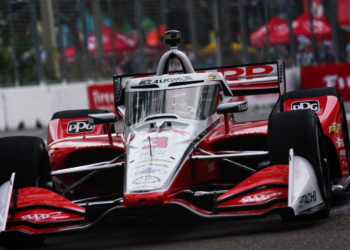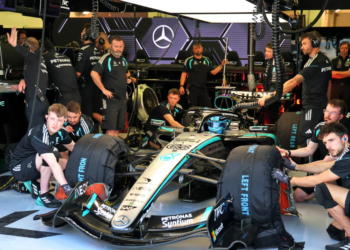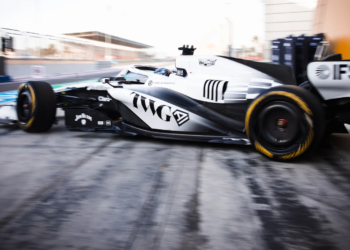Former Formula 1 driver Jolyon Palmer has applauded Red Bull's Daniel Ricciardo for the way he makes overtaking look "so easy" after the Australian clinched an unexpected victory on China at weekend after overtaking several cars late in the race.
Although Ricciardo had fresher tyres after pitting under the Safety Car and was therefore at an advantage, he still managed to battle his way up from sixth to first in just over 20 laps, making several brilliant overtakes in the process.
Palmer, writing in his BBC F1 column, said the key to Ricciardo's success was making sure he moved at the last second and therefore kept his rivals in the dark on what he was planning on doing, though it still required a lot of skill to complete the move successfully – unlike his team-mate.
"Ricciardo was at his brilliant best in the second half of the Chinese Grand Prix," wrote Palmer. "The late-race scenario of charging on fresh tyres brings the best out of him. It requires quick, convincing overtakes and that's exactly what the Australian provided on Sunday.
"He makes the difficult art of overtaking look so easy. The way he sets up an overtake is key.
"The thing is from the outside he doesn't give anything away. He knows how far back he can send a lunge in from, and when he's within range he sits in the slipstream and just waits for his opponent to brake before firing it down the inside at the last moment when it's too late for them to respond.
"The key for him is to give nothing away before the braking zone. When drivers move out too early, it actually becomes easier to defend as the driver ahead knows what to expect."
Palmer, who drove for Renault in 2017, also highlighted Ricciardo's commitment to making the pass stick as key to his success, as second thoughts can result in collisions or drivers backing off.
"His move on Hamilton was from further back. He did his trademark late lunge and made it look easy. No lock-up, made the apex, using the brakes to full efficiency. His judgement is remarkable.
"The key is to be so committed, no second thoughts or doubts about what you're going to do. When you start to second-guess yourself or change your mind during the corner, that's when collisions are more likely to happen and that's exactly what we saw with his team-mate."






Discussion about this post